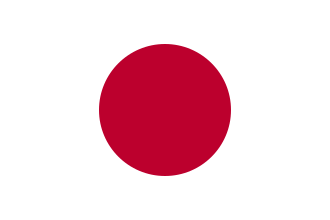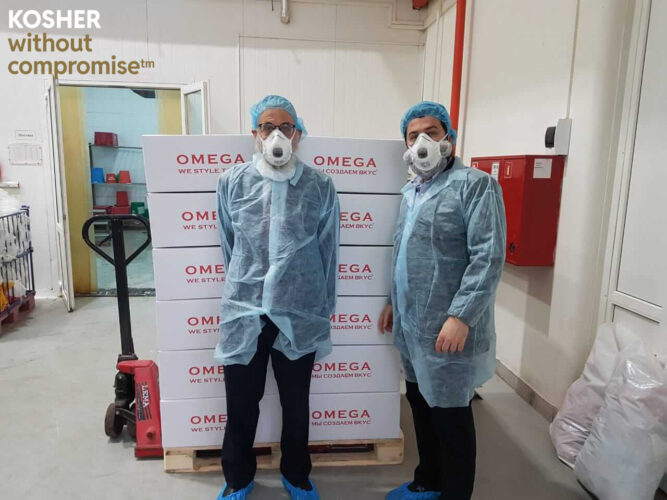
When you are looking for kosher certification, how do you choose a kosher agency? Navigating kosher certification can feel overwhelming, considering that there are over 1,000 kosher agencies out there. This guide is focused on helping you make informed decisions, identify reputable certifiers, and provide a basic understanding of the kosher certification process. OK Kosher Certification has been a trusted kosher certification agency for food and beverage manufacturers since 1935. OK Kosher sets itself apart with its DigitalKosher platform, a tool that streamlines the kosher certification process using advanced technology. This guide reflects our extensive experience working with companies like yours to navigate the kosher certification process.
Step 1: Define Your Market
Understanding your target audience is the first step. Where do you plan to sell your products?
Local Market:
If your products cater only to your local community, a community-based kosher agency may be the perfect fit. For example, a bakery in Pittsburgh, PA or in Paris France, might choose a local agency because it is locally recognized and economically feasible.
National Market:
If you sell your product beyond your local market or plan to, you will want a kosher agency with a strong reputation across the United States. Imagine selling your product to a major chain—they’ll likely require certification from an agency that is widely recognized by kosher consumers.
Global Market:
When it comes to selling internationally you certainly cannot compromise on anything other than a globally recognized kosher agency. Certification with a global agency gives your products credibility and access to kosher consumers worldwide.
Niche Markets:
There are certain communities that require Badatz certification. In many cases, the product will have a global certification along with the Badatz certification. Badatz is more product-based, generally certifying specific production runs.
In order to sell kosher-certified product in the State of Israel, there is a mandatory requirement to be approved by the Chief Rabbinate of Israel. Typically, the global agencies are recognized by the Chief Rabbinate.
Step 2: Be Mindful
Before signing with a kosher agency, you must be sure that their certification is reputable and will be acceptable to your market. Check if the agency uses technology like DigitalKosher to provide real-time updates, manage documents, and simplify communication. This can save time and reduce errors. If your product is retail (selling directly to the end consumer for personal use), make sure to ask colleagues and friends if the kosher certification’s standards and symbol are recognized. Kosher symbols on packaging serve as a quick reference point for consumers. They signal that a particular product has been thoroughly inspected and found to adhere to kosher standards. These symbols provide confidence to individuals who observe kosher dietary laws that the product aligns with their religious requirements. These symbols vary widely, with each certifying agency having its unique logo. OK Kosher Certification maintains one of the most instantly recognizable kosher symbols in the history of kosher certification. The Bold Circled K Is Eye-Catching and Symbolizes Kosher, Innovation and Professionalism. Around the world, consumers know that when they see the OK Kosher symbol on a product label, they are assured that our team has developed a comprehensive kosher program that fully integrates with the manufacturing process, and that they are guaranteed the highest possible kosher standard. The registered trademark of OK Kosher Certification stands the test of time; it is broadly understood, easily recognized and universally accepted and respected.
If your product is wholesale or industrial (selling in large quantities to businesses, retailers, or other intermediaries, rather than directly to individual consumers), it is essential to ensure your current and potential customers recognize and trust the agency you choose. For example, if you’re selling ingredients to kosher manufacturers, their own certifiers must approve your certification, so choosing the right agency is crucial. Researching the agency’s history, reputation, and the frequency and quality of its inspection processes. Reliable agencies are transparent about their methodologies. OK Kosher certifies hundreds of thousands of products around the world, operating regional offices across six continents. Our network comprises Regional Representatives in 115 countries around the world. In most cases, audits are performed in the local language. From mom-and-pop manufacturers to food giants, OK Kosher provides the highest standard of kosher certification services in the world. When you choose the OK Kosher as your company’s kosher partner, you receive more than a kosher certificate. Our team stands behind you with a passionate commitment to excellence in kosher and customer satisfaction.
Step 3: Understand the Certification Process
Certifying a facility involves more than just paperwork. With tools like DigitalKosher, OK Kosher allows businesses to track their kosher status, manage ingredients, and stay updated easily—all in one platform. Here’s a quick overview:
Initial Application:
You’ll provide details about your facility, products, and ingredients. Reputable agencies will schedule an on-site inspection to ensure compliance. Visit OK Kosher’s detailed information on the application process. You can request a free quote when you apply.
> Tip: Be cautious of agencies that offer certification without inspecting your facility. On-site visits are a must for maintaining integrity.
Ongoing Rabbi Visits:
Once you are certified, the frequency of visits by a local rabbinic representative will depend on your operations. Streamlining processes, for example ingredient segregation, can sometimes help to reduce inspection frequency and lower costs. Read more here.
Understanding the Certification Term:
Your kosher certification is valid for one year from the end of the month in which it was issued. For example, if your certification was issued in June 2024, it will expire in June 2025, with the next renewal extending through June 2026. To keep your kosher certification seamless, it’s vital to understand and fulfill the conditions for renewal. You can learn more here.
Step 4: Kosher Certification Costs
While each agency has its own fee structures, costs of certification can generally be broken down as follows:
Annual Fees:
This is the fee/ honorarium that covers the bulk of the certification services for your facility or facilities, as well as review and approval of ingredients and products.
Visit Fees:
Be sure to ask about costs for special services, such as annual reviews, Passover certification or additional inspections if applicable.
Renewals:
The term of certification is one year and subject to renewal on an annual basis. Find out what your renewal fee will be.
A Real-World Example
One of our clients, a candy manufacturer, initially chose a local kosher agency to cater to their market. As their products gained popularity, they transitioned to OK Kosher to meet growing demand because many prospective clients and chains they were targeting did not recognize their original agency. This switch opened doors to retail chains, boosting their sales, brand recognition, and reputation in a short period.
Another example involves a company selling products to South Korea. Their products were denied entry because local authorities required kosher agencies to be officially registered.
Both companies shared that they wished they had understood the value of a global kosher agency from the start. It would have saved them the time, effort, and expense of updating all their packaging, as well as protecting their brand recognition and reputation.
> Tip: For food and beverage companies making retail items, be mindful of the fact that the only sure way to let consumers know that your products are kosher certified is by using the kosher symbol, which is a registered trademark, on your labeling. Therefore, packaging is an important aspect of your decision-making. If you need specific guidance, OK Kosher is available to help.
Why Kosher Contracts Matter
Kosher certification isn’t just a label; it’s a commitment. Contracts often require annual renewals and strict adherence to guidelines. If you’re planning to switch agencies, start the process in advance to avoid certification gaps.
Kosher Designations: What Do They Mean?
You’ve probably seen symbols like “Pareve” or “D” on packaging, but what do they mean?
– Pareve: Neutral, neither meat nor dairy.
– D: Dairy.
– P: Kosher for Passover.
Understanding these terms helps you cater to specific kosher consumers effectively. You can read more about kosher designations here. An OK Kosher representative will be happy to meet with you for further information.
Make Informed Choices
OK Kosher’s combination of human expertise and tools like DigitalKosher ensures an efficient, reliable, and transparent certification process. Choosing or changing a kosher agency is a big decision, but it’s also an opportunity to grow your business. With the right certification, you can unlock new markets, build trust with consumers, and position your brand for success. For personalized guidance, don’t hesitate to reach out to us at OK Kosher. The application process is free of charge and will give you both a comprehensive understanding of your specific kosher program, and the costs to obtain and maintain certification.
As the saying goes, “The bitterness of poor quality remains long after the sweetness of low price is forgotten.” Don’t take shortcuts when choosing your kosher certification partner. If you have further questions not addressed here, please visit our FAQs or contact us directly.
Achieving the highest possible standards with excellent service is our goal.


 EN
EN  ZH
ZH  KR
KR  BR
BR  ES
ES  IN
IN  IL
IL  JP
JP 



